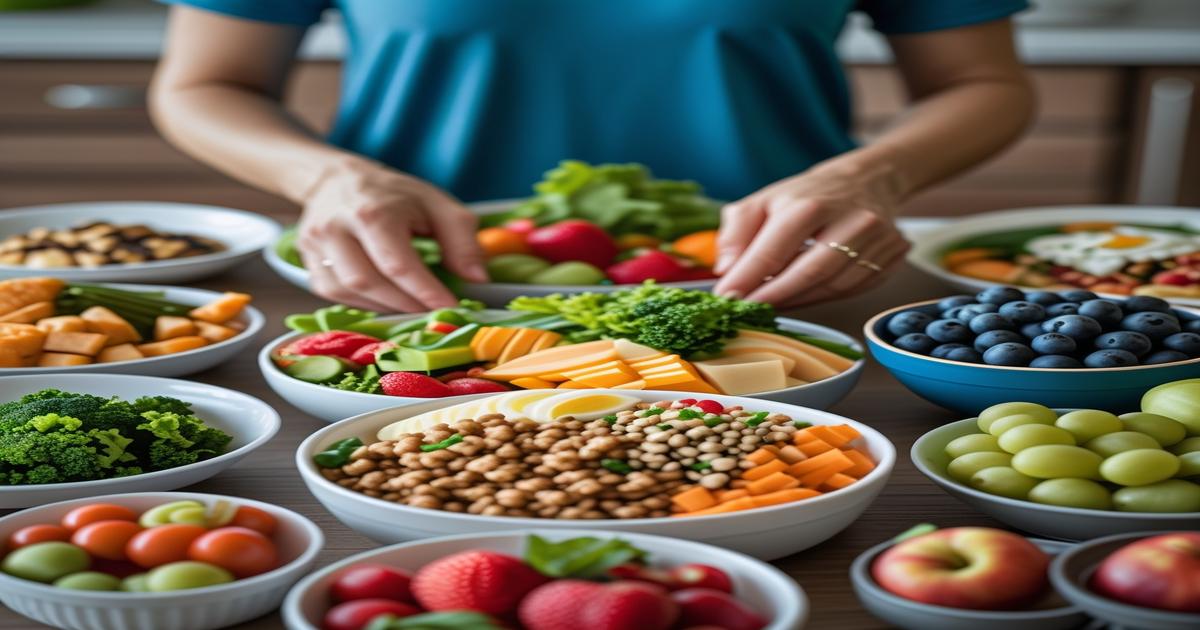As you embark on your journey toward sustainable well-being, crafting balanced meal plans becomes a cornerstone of success. Nutritional balance isn’t about restriction; it’s about ensuring that your body receives the essential nutrients it needs while keeping meals enjoyable and satisfying. Let’s dive into the art of creating meal plans that align with long-term health goals and how you can make this lifestyle fulfilling and accessible. 🥗
Why Balanced Meal Plans Matter for Sustainable Health
Balanced meal plans provide the foundation for sustained energy, better mood regulation, and overall health improvements. When meals include a variety of nutrients, you enable your body to function optimally, supporting everything from metabolism to mental clarity.
Essential Elements of a Balanced Meal Plan 🥦🍗🍞
1. Protein: Vital for muscle repair and satiety. Incorporate sources like lean meats, legumes, and tofu.
2. Carbohydrates: Your body’s primary energy source. Opt for whole grains, sweet potatoes, and fruits.
3. Fats: Crucial for hormone balance and absorbing fat-soluble vitamins. Include avocados, nuts, and olive oil.
4. Veggies & Fruits: Packed with vitamins, minerals, and fiber. Aim for a rainbow on your plate.
5. Hydration: Don’t overlook water intake. It aids digestion and keeps you feeling energized. 💧
Actionable Steps to Craft Your Meal Plan
Creating a meal plan doesn’t have to be daunting. Here are steps you can take to get started:
Start with a Structure 🗓️
Begin by outlining your weekly meals and snacks. Planning ahead reduces decision fatigue and prevents unhealthy last-minute choices. Choose themes for each day to simplify planning – perhaps ‘Meatless Monday’ or ‘Fish Friday’. 🐟
Incorporate Variety and Enjoyment
Experiment with new recipes and cuisines to keep meal times exciting. This not only broadens your palate but ensures a diverse intake of nutrients.
Batch Cooking for Ease and Efficiency
Set aside time each week to prepare and cook your meals in batches. This saves time and ensures you always have ready-to-eat meals on hand.
Stay Flexible and Listen to Your Body 🤔
Understand that your nutrition needs might shift – perhaps due to activity levels or seasonal changes. Listen to your hunger cues and adjust as needed.
Mindset Shifts for Lasting Change
Mindset plays a crucial role in sustainable health. Cultivate a positive relationship with food where balance and nourishment are prioritized over restriction.
Practice Self-Compassion
Allow room for life’s unpredictability. If you deviate from your plan, approach it without guilt and view it as a learning opportunity.
Make Nutrition Education a Fun Journey 🎓📚
Engage in learning about the food you eat, understanding how it fuels your body, and appreciating its role in your life.
FAQs about Balanced Meal Plans
Q: How do I plan meals without spending too much time in the kitchen?
A: Batch cooking and meal prepping are your best friends. Dedicate a few hours weekly to prepare and divide meals into portions to carry you through the week.
Q: What if I don’t like certain healthy foods?
A: There are countless alternatives to every food type. Experiment with different spices and cooking methods to make meals more palatable.
Q: How can I ensure I’m getting all the necessary nutrients?
A: Focus on variety and balance. Include different food groups in each meal to cover multiple nutritional bases. Consider consulting a nutritionist if you’re unsure.


 Fashion8 years ago
Fashion8 years ago
 Entertainment8 years ago
Entertainment8 years ago
 Fashion8 years ago
Fashion8 years ago
 Entertainment8 years ago
Entertainment8 years ago
 Sports8 years ago
Sports8 years ago
 Sports8 years ago
Sports8 years ago
 Entertainment8 years ago
Entertainment8 years ago
 Entertainment8 years ago
Entertainment8 years ago







